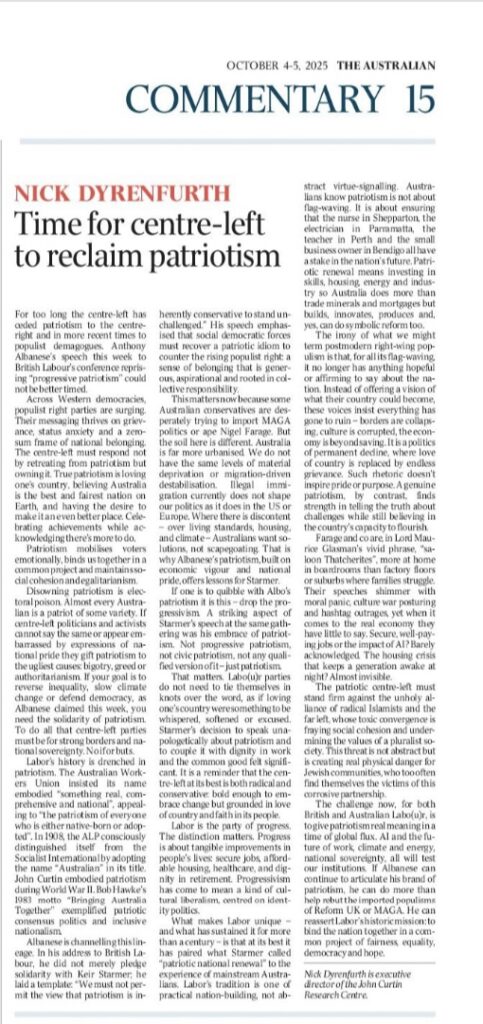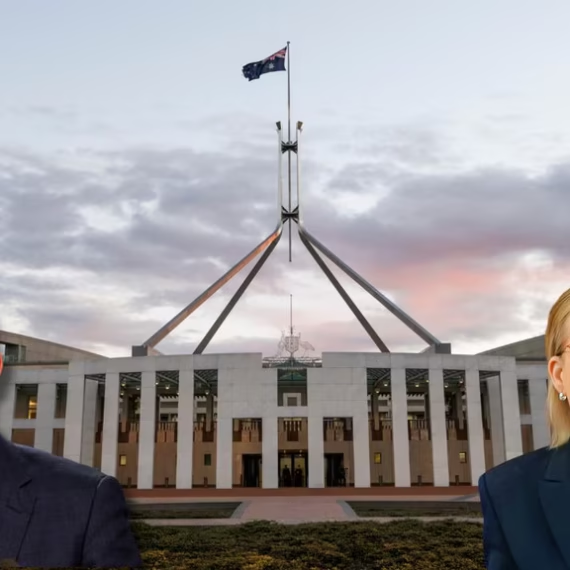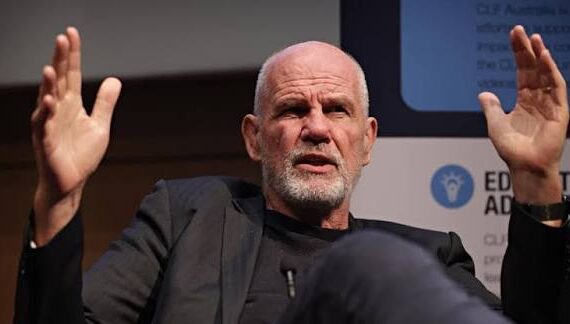
Nick Dyrenfurth
Executive Director of the John Curtin Research Centre

For too long, the centre-left has ceded the patriotism to the centre-right and in more recent times to populist demagogues. Prime Minister Anthony Albanese’s speech this week to UK Labour’s conference reprising “progressive patriotism” could not be better timed.
Across the Western democracies, populist right parties are surging, whether it be Reform UK, France’s National Rally, Germany’s AfD and the effective MAGA takeover of the Republican Party. Their messaging thrives on grievance, status anxiety and a zero-sum frame of national belonging. The centre-left must respond not by retreating from patriotism but owning it.
True patriotism is loving one’s country, believing that Australia is the best and fairest nation on Earth, and make it a better place. Celebrating achievements while acknowledging there’s more to do. Patriotism mobilises voters emotionally, binds us together in a common project, and maintains the social cohesion and egalitarianism that defines Australia at our best.
Disowning patriotism is electoral poison. Almost every Australian is a patriot of some variety. If centre-left politicians and activists cannot say the same or appear embarrassed by expressions of national pride they gift patriotism to the ugliest causes: bigotry, greed, or authoritarianism. If your goal is to reverse inequality, slow climate change, or defend democracy as Albanese claimed this week, you need the solidarity of patriotism. To do all that centre-left parties must be for strong borders and national sovereignty. No if or buts.
Labor’s history is drenched in patriotism. The Australian Workers’ Union insisted its name embodied “something real, comprehensive and national,” appealing to “the patriotism of everyone who is either native-born or adopted.” In 1908, the ALP consciously distinguished itself from the Socialist International by adopting the name “Australian” in its title, at the same moment Prime Minister Andrew Fisher created the Royal Australian Navy. John Curtin literally embodied patriotism during World War Two. Bob Hawke’s 1983 motto “Bringing Australia Together” exemplified patriotic consensus politics and inclusive nationalism.
Albanese is channelling this lineage. In his address to UK Labour, Albanese did not merely pledge solidarity with Starmer; he laid a template: “We must not permit the view that patriotism is inherently conservative to stand unchallenged.” His speech emphasized that social democratic forces must recover a patriotic idiom to counter the rising populist right: a sense of belonging that is generous, aspirational and rooted in collective responsibility.
This matters now because some Australian conservatives are desperately trying to import MAGA politics or ape Nigel Farage. But the soil here is different. Australia is far more urbanised. We do not have the same levels of material deprivation or migration-driven destabilisation. Illegal immigration does not presently shape our politics as it does in the US or Europe. Where there is discontent – over living standards, housing, and climate – Australians want solutions, not scapegoating. That is why Albanese’s patriotism, built on economic vigour and national pride, is potent and offers lessons for Starmer.
If one is to quibble with Albo’s patriotism it is this – drop the progressivism. A striking aspect of Starmer’s speech at the same gathering was his embrace of patriotism. Not progressive patriotism, not civic patriotism, not any qualified version of it – just patriotism. That matters. Labo(u)r parties do not need to tie themselves in knots over the word, as if loving one’s country were something to be whispered, softened, or excused. Starmer’s decision to speak unapologetically about patriotism and to couple it with dignity in work and the common good felt significant. It is a reminder that the centre-left at its best is both radical and conservative: bold enough to embrace change but grounded in love of country and faith in its people.

Labor is the party of progress. The distinction matters. Progress is about tangible improvements in people’s lives: secure jobs, affordable housing, healthcare, and dignity in retirement. Progressivism has come to mean a kind of cultural liberalism, centred on identity politics. If voters want that, they’ll choose a Malcolm Turnbull-style liberal or radical Greens.
What makes Labor unique – and what has sustained it for more than a century – is that at its best it has paired what Starmer called “patriotic national renewal” to the lived experience of mainstream Australians. Labor’s tradition is one of practical nation-building, not abstract virtue-signalling: it is a politics of progress rooted in solidarity and the common good.
Australians know patriotism is not about flag-waving. It is about belonging to a community greater than ourselves, about responsibility as much as pride. It means ensuring that the nurse in Shepparton, the electrician in Parramatta, the teacher in Perth, and the small business owner in Bendigo all have a stake in the nation’s future. Patriotic renewal means investing in skills, housing, energy, and industry so that Australia does more than simply trade minerals and mortgages but builds, innovates, produces and, yes, can do symbolic reform too.
The irony of what we might term postmodern right-wing populism is that, for all its flag-waving, it no longer has anything hopeful or affirming to say about the nation. Instead of offering a vision of what their country could become, these voices insist that everything has gone to ruin – borders are collapsing, culture is corrupted, the economy is beyond saving. It is a politics of permanent decline, where love of country is replaced by endless grievance. Such rhetoric doesn’t inspire pride or purpose. A genuine patriotism, by contrast, finds strength in telling the truth about challenges while still believing in the country’s capacity to flourish.
Farage and co are, in Lord Maurice Glasman’s vivid phrase, “saloon Thatcherites”, more at home in boardrooms than factory floors or suburbs where families struggle. Their speeches shimmer with moral panic, culture war posturing, and hashtag outrages, yet when it comes to the real economy, they have little to say. Secure, well-paying jobs or the impact of AI? Barely acknowledged. The housing crisis that keeps a generation awake at night? Almost invisible.
The patriotic centre-left must also stand firm against the unholy alliance of radical Islamists and the far left, whose toxic convergence is fraying social cohesion and undermining the values of a democratic, pluralist society. This threat is not abstract but is creating real physical danger for Jewish communities, who too often find themselves the first victims of this corrosive partnership.
The challenge now, for both British and Australian Labo(u)r, is to give patriotism real meaning in a time of global flux. AI and the future of work, climate and energy, national sovereignty, all will test our institutions. Patriotism, in this context, means shaping those forces for the common good so that for instance technological change strengthens democracy rather than hollows it out, and that national renewal is rooted in solidarity rather than fear.
If Albanese can continue to articulate his brand of patriotism, he can do more than help rebut the imported populisms of Reform UK or MAGA. He can reassert Labor’s historic mission: to bind the nation together in a common project of fairness, equality, democracy and hope.
That is not only good politics. It is the essence of patriotism.





